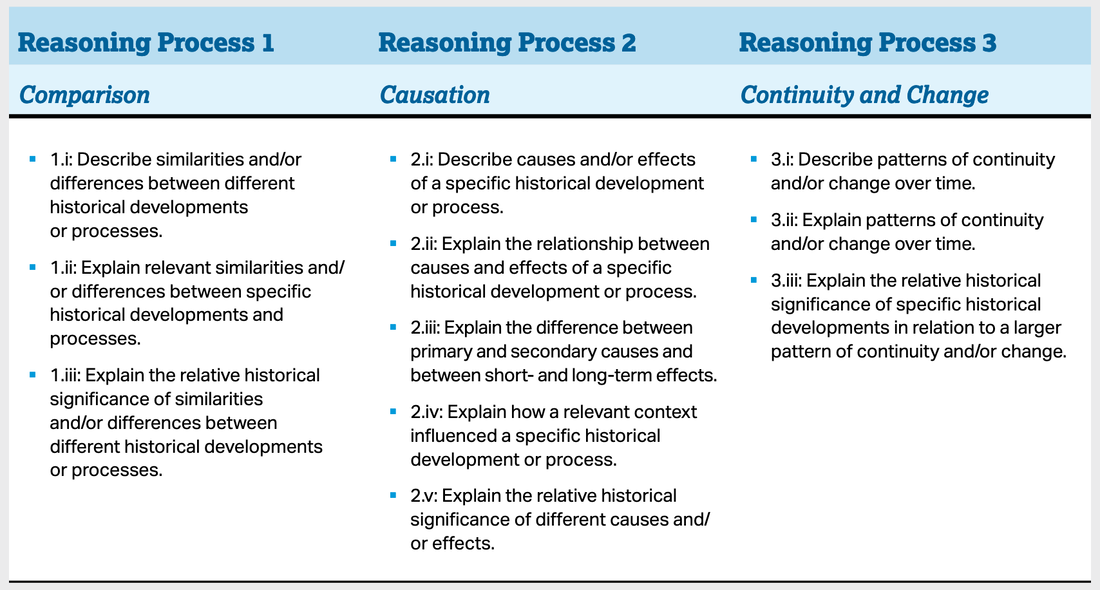This section presents the historical thinking skills and reasoning processes that students should develop during the AP history courses that form the basis of the tasks on the AP history exams.
Historical Thinking Skills
AP World History addresses six major skills that represent the ways historians think about the past. These skills are considered "habits of mind." That means these are skills that need to be practiced repeatedly until they becomes second nature.
Skill 1: Developments and Processes
|
Skill 4: Contextualization
|
|
|
Skill 2: Sourcing and Situation
|
Skill 5: Making Connections
|
|
|
Skill 3: Claims and Evidence
|
Skill 6: Argumentation
|
|
|
Historical Reasoning Processes
Reasoning processes describe the cognitive operations that students will be required to apply when engaging with the historical thinking skills on the AP Exam. The reasoning processes ultimately represent the way practitioners think in the discipline.

